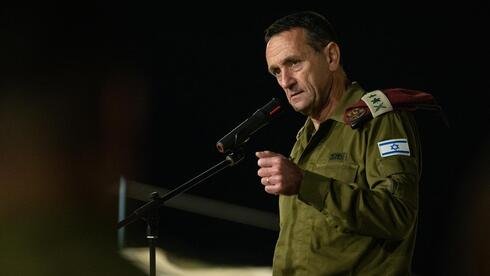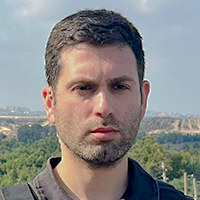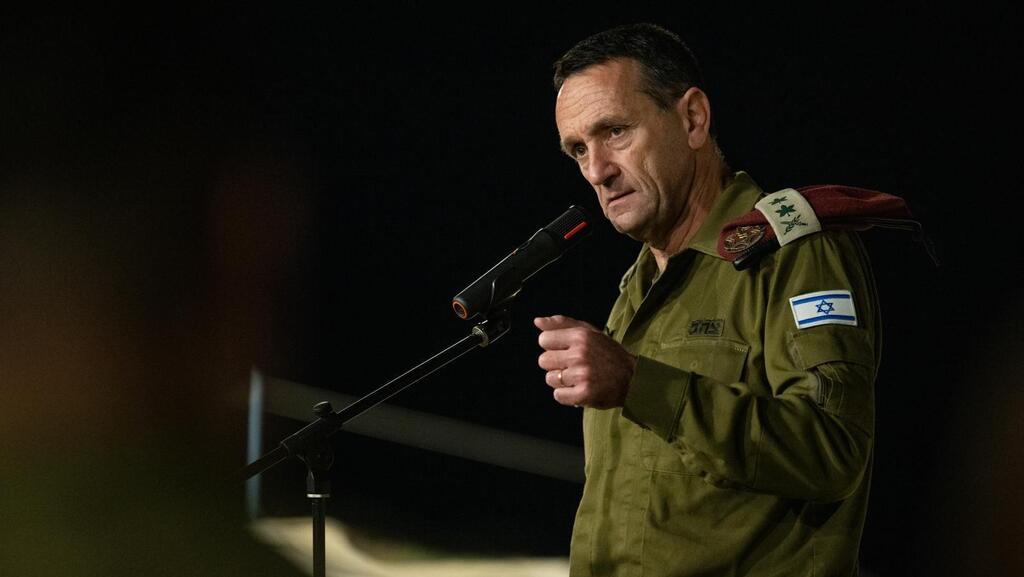Maj. Gen. Herzi Halevi will arrive in the US for an official and final visit as he concludes his term, where he will meet with senior Pentagon officials and discuss coordination with them against threats led by Iran
The IDF spokesman announced that outgoing Chief of Staff, Maj. Gen. Herzi Halevi, will depart Sunday night for an official visit to the United States through Thursday. During the visit, he will meet with the Chairman of the Joint Chiefs of Staff, the Commander of CENTCOM, and senior US military officials. They will discuss “key strategic and operational issues,” according to the IDF spokesman. The position of the Chief of the General Staff will be filled by Deputy Chief of the General Staff, Maj. Gen. Amir Baram, during the visit.
“During the Iron Swords War, cooperation between the two militaries has been exceptional. The Chief of the General Staff will take the opportunity to express his gratitude to his counterparts for their support, commitment and personal ties. Additionally, he will explore ways to further enhance this cooperation,” the IDF said in a statement.
The visit to the US will be the last official visit by Halevi, who announced his resignation last month. About a week and a half ago, the commander of the U.S. Central Command (CENTCOM), Gen. Michael E. Kurilla, visited Israel and met with Halevi. An IDF spokesman said at the time that, during the visit, the commanders held a discussion with the participation of senior army officials, which dealt with assessing the regional strategic situation and examining courses of action to continue dealing with the threats in the Middle East, while cooperating between the armies.
Even before that, ahead of U.S. President Donald Trump’s inauguration in January, Vice Admiral Brad Cooper, Kurilla’s deputy, landed in Israel. At that time, the parties discussed critical weapons shipments that the U.S., under former President Joe Biden, had frozen, as well as improving preparedness for a possible joint US-led attack on Iran’s nuclear facilities.
2 View gallery


Situation assessment by Chief of Staff Herzi Halevi and Commander of US Central Command, General Michael E. Kurilla in Israel
(Photo: IDF Spokesperson’s Unit)
According to the report, the U.S. has already supplied Israel with bunker-busting bombs that could severely damage Iranian centrifuges and other uranium enrichment equipment at the nuclear sites in Fordow and Natanz. In Israel, wrote senior commentator David Ignatius, there are concerns that Iran is secretly racing toward the 90% uranium enrichment level needed to produce a nuclear bomb.
Ignatius quoted American and Israeli officials who said that if Iran does not agree to abandon its nuclear facilities “Libyan style,” Israel intends to bomb them “with or without U.S. support.” Even before that, American media outlets published intelligence reports according to which the U.S. estimates that Israel will attack Iranian nuclear facilities in the first half of 2025. CNN added that, in addition to attacking these nuclear facilities, Israel’s ultimate goal remains the overthrow of the regime in Tehran, and that is what it is aiming for.


